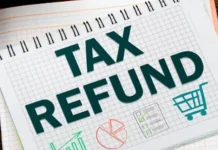Tax planning at the beginning of the financial year is considered very important. You can try to reduce the tax burden and increase the return on investment by making a well-planned plan.
No one wants to lose their hard earned money to tax. You can try to reduce the tax burden and increase the return on investment. Along with taking tax saving measures, you should also know how to get maximum return on investment. Here are some tips that will help you increase your returns by saving tax while investing.
You should do tax planning at the beginning of the financial year. This is the most important method which can be done to get maximum return on any investment. Experts agree that tax planning is very important when it comes to saving on returns. If you are planning to invest in tax saving instruments like PPF, ELSS, it is best to invest in the beginning of the financial year.
invest in their names to earn more from fixed deposits
You can invest in the names of your parents, grandparents and spouses, who may be in lower tax brackets, to avoid income clubbing. If either of your parents is above 65 years of age and does not have any investments, you can invest in their names for tax free interest. Those above 60 years of age are already entitled to a baseline exemption of Rs 3 lakh. Apart from this, if you invest in the name of a grandparent who is above 80 years of age, then the exemption limit is more than Rs 5 lakh.
kids help too
Your child can also help save tax, but only if he or she is above 18 years of age. A child after becoming an adult is treated as a separate person in the tax case. He will even be eligible to open a demat account, invest in stocks and mutual funds with your gifted money. Long term capital gain up to Rs 1 lakh will be tax free every year, while short term capital gain will be tax free up to a standard exemption of Rs 2.5 lakh per annum.
PPF, NPS are good options
Public Provident Fund (PPF) is a retirement savings scheme run by the central government. Its aim is to provide a secure life after retirement to all. The maximum investment limit in PPF is Rs 1.5 lakh. You get tax exemption on this amount. Similarly, the National Pension Scheme (NPS) is also there as a different tax-free option.






